 by Davis Schneiderman
by Davis Schneiderman
“Look: I am standing inside the color yellow,” says Vincent Van Gogh at the opening of Lance Olsen’s 2009 novel Head in Flames (Chiasmus Press). Evocative and vaguely synesthetic, this is an impossibly quintessential Olsen line—his work reads like an index of “the multiple” in an age where that old gag (writing as polyphonic, non-linear, recursive) has in some cases long ignored its learned helplessness. It’s not that Olsen’s brand of postmodernism is entirely “over,” but that it refuses, with good reason, to fall into the repetitive traps that would ensnare such an obsessive oeuvre if penned by a less open and exacting writer. A more recent Olsen work, My Red Heaven (Dzanc Books, 2020), proved this point, charting the intersection of characters (including Robert Musil, Otto Dix, Rosa Luxemburg, Anita Berber, and Vladimir Nabakov, among others) across a single day in 1927 Berlin.
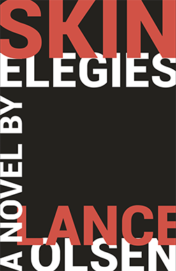 Skin Elegies (Dzanc Books, $16.95), Olsen’s newest, is one of his best. The concept is simple: A series of datelines introduce ten narratives that in most cases occur on a historical date, even as the stories we receive in leapfrogging fragments are the little histories of individuals. Olsen’s ability to make the small into the large and the large into the ever-fragmenting small is framed, in Skin Elegies, by a consciousness-uploading subplot in the year 2072. Olsen’s narrative optimism that we’ll make to that date reminds us that for all his investigation of the dark, he’s a deeply humanistic writer.
Skin Elegies (Dzanc Books, $16.95), Olsen’s newest, is one of his best. The concept is simple: A series of datelines introduce ten narratives that in most cases occur on a historical date, even as the stories we receive in leapfrogging fragments are the little histories of individuals. Olsen’s ability to make the small into the large and the large into the ever-fragmenting small is framed, in Skin Elegies, by a consciousness-uploading subplot in the year 2072. Olsen’s narrative optimism that we’ll make to that date reminds us that for all his investigation of the dark, he’s a deeply humanistic writer.
Davis Schneiderman: Skin Elegies, at least on one level, is about erasure: individual stories occur within, through, or atop headlines that we may remember at a historical remove. So, on erasure, what do you recall about our lost Zoom interview from early in the pandemic (the recording of which disappeared from my server), about your novel My Red Heaven?
Lance Olsen: What you’re pointing to, Davis, at least from one perspective, is how pastness is always a problem: who’s telling it, from what vantage point, and why. It’s funny, what I remember most from our mysteriously erased Zoom call/interview is nothing besides your smiling face, this warm sense of curiosity and exploration and good-spiritedness that pervaded it, your eccentric questions (although I don’t remember specifics), and our discussion of the multitude of failures associated with historiography—an obsession of mine forever, it feels like. Which gets me thinking about one of the subplots in Skin Elegies: a woman committing assisted suicide in Switzerland on a day that turns out to be the one on which the Twin Towers were erased, a new reality begun. Most of us don’t experience the immense moments in history straight on, but rather at a slant—in, as it were, our peripheral vision, while we’re doing something else. According to 2017 data, the most recent, about 150,000 people die every day around the globe. On that scale, and from that perspective, 9/11 was not in any way a minor event, but still a strangely familiar one. We die, we die, we die. In a sense, that’s how all stories end, whether we want them to or not. Only the how is sometimes vaguely unique. Each of our deaths is simultaneously important and inconsequential against the backdrop of history that in a profound way doesn’t care.
DS: We so often want to make history care, so I care that we lost the Zoom interview. It was one of those conversations that lifted me out of the doldrums of the pandemic and left me feeling as if I had been transported—from days of endless flat zooming—back into a multi-dimensional space where words still exist on the page, in the mind, and in conversation.
LO: It’s a much better interview because it doesn’t exist. Now we can both misremember it in very rich ways. I would hazard a guess that it’s the best interview either of us has ever done. Don’t you agree? A work of brilliant conceptual art in line with your amazing Blank (Jaded Ibis Press, 2011)—every page a flawless void beneath a chapter title, all about the presence of absence.
DS: You are kind to say so, and Blank also ends with the same important/inconsequential death you reference above. Since we’re all basically atoms and void, has the pandemic changed your reading or writing behaviors in any tangible manner? I find I am listening to more audiobooks than usual, as I move through spaces where I want to overlay narrative onto lived experience.
LO: I want to thank the pandemic for giving us all a moment to watch ourselves living. I’m only partly joking. When I went to ground in the opening days, I rediscovered an ability to clarify and focus that I hadn’t been able to experience in years. I was able to read and write with a lack of diurnal frenzy and with an abundance of intensity. It brought to mind my Ph.D. reading year. Don’t tell anyone, but it was really nice, too, not to see people live for a while. I felt like a monk in 983. I also enjoyed the opportunity to relearn how to embrace adaptability and flexibility on an hourly basis. That’s half the story. The other half probably rhymes with most people’s accounts, especially those of academics. That Zoom screen actually began to make me nauseous after a week or two. There is something terribly sad and befuddling about disconnected connection. And as important as mask-wearing was and is, it was so odd—is so odd—to have to learn to recognize students by their eyes alone, never see three-fourths of their worn emotions. I always suggest to my creative-writing students that our ultimate job is to ask ourselves how we can write the contemporary without either simply embracing or simply abandoning the past. I wonder how this perpetual pandemic, combined with the very immediate climate catastrophe, will manifest in fiction.
DS: Sometimes I think of my books like the home screen for a streaming service, with the world separated into squares, and I see your narratives that way as well—not in a pejorative sense, but as mosaics. I want to believe you write them in leapfrog format—a little of one and then some of the next—and do not simply chop up “complete” narratives into the form of the novel.
LO: It’s true. At least for today. No, seriously: initially I found it difficult to locate each of the voices in Skin Elegies, hear their rhythms and obsessions, invent a way to represent them on the page. It felt a little like beginning nine different novels. So the first, say, fifty pages were like juggling a hundred objects, some of them axes, knives, and razor blades. But once I got those voices into my head they wouldn’t leave. At a certain point the juggling began to feel natural, and the metaphor transformed into one of barnacles growing on a wreck or rock, which felt exciting to wake up to every morning. I’ve been referring to the form of Skin Elegies as a constellation novel, one built from many narrative fragments that intimate, for want of a better phrase, an anti-teleological activity. That is, I’m ever-interested in narratives that don’t easily narrativize, that don’t move from beginning to end in a smooth arc. I like novels that exist as nomadic travel.
DS: All of the dates have a “big history” aspect to them, where large events are overtaken by the personal narratives that have, for those involved, a much more lasting impact. Tell me a bit about where some of these dates or stories come from.
LO: The “big history” dates were a way to think about (and invite others to think about) what pivotal moments in our postwar cultural consciousness made us all a little bit more who we are in 2021. If you had to distill nine out of the welter, I ask behind my narrativizing, which would they be? We’ll all answer differently, but the ones I write about in Skin Elegies are some of the essential ones for me. Let me, however, tell you about the odd one out and how that came to be. Nearly twenty-five years ago, a student named Michelle Neurauter signed up for one of my creative-writing classes. She was incredibly sweet and sharp, and we stayed in touch on and off ever since. She ended up moving out east with her husband and kids. When I gave readings in the area, Michelle attended and we’d make a point to catch up over coffee. Then one day I went over to her Facebook page to see what she’d been up to recently, only to discover her husband—with the help of one of her daughters—had murdered her after years of domestic abuse. I wrote one subplot of Skin Elegies in tribute to her.
DS: That’s terrible, I’m very sorry. I was going to ask you about this narrative in particular, as it felt different from the others, with a sense of impending darkness crashing over it in repeating waves. Do you think, given you are adjacent to it in ways you are not connected to the others, that this story of domestic violence serves a different narrative function from the others? Put another way, are each of these “equal” in the narrative swirl?
LO: Michelle’s story definitely exists in a different category for me from the others. Its hurt is still very present. That said, the overall structure of Skin Elegies is paratactic—a series of splintered narratives connected by the conjunction “and,” as it were, rather than, say, hypotactic, which indicates the hierarchy evinced in a subordinate clause. What draws me to narrative parataxis is its suggestion by architectonics that everything inbound is equal, that the world arrives as shrapnel, not logic or line or illumination. For me, that’s what the contemporary feels like—that sense you get when surfing the web, for instance: this continuous disorientation followed by orientation followed by disorientation, while emails and texts are pinging in the background and your phone is buzzing and someone is knocking on your door, believing it’s someone else’s, and outside there’s this guy with his goddamn leaf blower set on max power. Information sickness, Ted Mooney called it prophetically in in his fantastic novel Easy Travel to Other Planets (Farrar, Straus and Giroux), back in 1981.
DS: You know, of course, that I share your interest in the paratactic. I also wonder about its limits. From one angle, the work you produce thrillingly taps into this vein of the disoriented contemporary. From another angle, we’ve been reading works like this for more than half a century, at least in a manner that attempts to decenter hypotactic narrative. My question, though, is whether you like to consume hypotactic narratives as a reader. Does your “taste” skate over different narrative modes?
LO: Part of the issue is the pronoun you’re using. When you ask me about “me” as a reader, I find myself wondering: which one? I’ve been so many over my lifetime. And my sense of interpretation, of the innovative, of everything, has changed astronomically from, say, my high school days, when Kafka and Vonnegut were my models for the cutting edge. Now it takes some pretty explosive moves for me to think of a work as experimental, which probably says more about my literary jadedness than about anything else. Which is to submit that who we are, when we are, what we’ve read, what we haven’t, what we’ve been taught to read, how we’ve been taught to read, how books have taught us to read them, and so forth, are in constant flux. I no longer know what someone means when they say “innovative” or “experimental.” I no longer know what I mean. And, whatever I mean, I’m sure it changes by the minute, which means my “taste,” I’m sure, changes by the second. So all I can really say is that I try not to think too hard about genre these days, seem to be drawn to what I might call post-genre texts, while at the same time I do indeed find myself now and then falling into narratives that aren’t, as it were, anti-foundationalist, like, for instance, those by Don DeLillo or Jenny Erpenbeck.
DS: There are degrees of interest, for me, and those can be found in any narrative. I try to approach each project on its own terms—i.e., how is it “doing” its work, whether that’s a “traditional” thriller or something more “innovative.” With this frame, it’s easy not to worry about what might be a guilty pleasure. Even so, I want to ask, what’s a literary work you enjoy that could be seen as existing outside the pantheon of the types of works we are talking about (including the broad inclusion of DeLillo or Erpeneck)?
LO: I agree totally, but I just realized something as I thought about how to respond: When I start itching for a (let’s call it) more normative text, I tend to turn away from books and toward film, whether it’s the latest James Bond, which, I confess, I absolutely adore, or more serious work like Nomadland, which blew me away on an emotional level for its transformation of the American road trip into a scathing indictment of what our country has unraveled into. I feel like I do—or want to do—a different kind of work when I engage with a written text. That’s probably down to a combination of how I’ve been taught and how I’ve been wired. For whatever reasons, straightforwardness doesn’t tend to interest me in prose. I’ll try to read a “straightforward” novel, and I’ll do it, and a week later I won’t remember a thing about it. Which, I suspect, will also be the case with said James Bond film, which I saw three days ago.
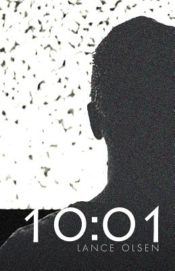 DS: So, let’s talk about the Challenger. I watched it on TV, like so many other school kids, and the only name I know from the day—perhaps like too many others—is Christa McAuliffe. This narrative in Skin Elegies remains in the present of its “big history” event and enters the characters through reflections, refractions, and flashbacks. That technique is one you’ve employed so effectively in other texts, and it harkens, for me, to your 10:01 (Chiasmus Press, 2005). Could you talk about how you think time functions, or doesn’t, in this or any of the other threads?
DS: So, let’s talk about the Challenger. I watched it on TV, like so many other school kids, and the only name I know from the day—perhaps like too many others—is Christa McAuliffe. This narrative in Skin Elegies remains in the present of its “big history” event and enters the characters through reflections, refractions, and flashbacks. That technique is one you’ve employed so effectively in other texts, and it harkens, for me, to your 10:01 (Chiasmus Press, 2005). Could you talk about how you think time functions, or doesn’t, in this or any of the other threads?
LO: I’ve been drawn to explorations of temporal elasticity since, as you say, 10:01; of how we experience its subjective passing—the time of bliss, pain, boredom, sleep, fear, rage, and so on—as a different variety altogether than we do objective time. Several of the narrative clusters that form Skin Elegies (I’m thinking, for example, of the Columbine attack) try to represent that from the inside out. What has always struck me about the Challenger disaster in particular, after I learned the cabin hadn’t depressurized and the crew probably hadn’t died immediately, was what must have gone on in each of their minds during their terminal fall, which may have lasted as long as several minutes. What does time feel like when we are aware we have so little of it left and no way to extend its deliciousness? Every story ends in a final punctuation mark, a splash of white space, even so-called comedies, in a way that to me indicates a deep-structure knowledge that it’s all a matter of time and how we experience it before the great silence.
DS: As time passes, how has your writing practice changed? Do you write the same way and with the same motivations you had when you started?
LO: What I’ve tried to do fairly consistently over the last couple of decades is to mine narratological, existential, and theoretical problems that wake me up in the midst of my dreaming, that will be productive to think and feel about for two years or so (the duration it usually takes me to write a novel), and that will teach me something deep about myself and others and the world. Writing for me has become increasingly a contemplative space, as well as a space of empathy practice. And yet it remains a formal puzzle that delights me, too; I’m fascinated by investigating structures and the philosophies they suggest, how they not only speak to but grow out of the core metaphor of the text upon which I’m working. Finally, I’m interested in mining the two things that novels can do that other art forms can’t: extended consciousness and the various blisses of language.
DS: Writing as a sustained practice is an elusive delight that I believe you are fortunate to have held onto—and I suspect that were there no audiences, you’d be similarly engaged. Yet are there limits? Have you ever entered a period where the sustenance was less forthcoming, and where you slowed or questioned the practice?
LO: Absolutely. Strangely enough, that feeling of sustenance-less-forthcoming tends to arrive when I’m not writing—when I’m distracted by, say, teaching, administrating, or simply life-event things that happen off the page. I’ll then sit down in front of my laptop, open whatever it is I’ve been working on, clear all the other voices in my head, and stand by to crash. Only—and I don’t really know how to describe this—the language on the screen will bring me back to life; the consciousness I’ve been inhabiting will invite me in again. And there I go, sometimes so slowly that if I get two sentences down in a day I’m overjoyed, sometimes a little faster. By the way, I find it’s the same for me with exercising. The less I do it, the less I want to do it. The more, the more.
DS: Why can’t other art forms extend consciousness? I feel this way about improvisational music, but—
LO: Oh, I mean something very precise about how fiction—especially novels—behave and misbehave: they can approximate mind, deep mind, deep thinking and feeling. A film can’t do that because, by the nature of the medium, it’s locked in exteriority; interiority can only be inferred. Music, no matter what kind, can’t do that because it’s an abstract medium; it can make you feel, but not ride someone’s circus of the mind in motion in the form of luscious language. Now don’t get me wrong. Film and music can do amazing things fiction can’t. I’m not trying to suggest a hierarchy of art forms. Rather, I like to think about why, say, novels are still around. Despite the plethora of announcements concerning their deaths since the ‘60s, the truth is the novel as a form is alive, well, and thriving in all ways save the economic. So we have to ask ourselves what function they have in our culture that other aesthetic delivery services don’t—why are they still with us in abundance, and why are MFA and Ph.D. programs in creative writing spreading like cockroaches in a New York apartment in 1973.
DS: I have an answer for that, and I’ll deliver it to you in song form. Listen for it on your favorite music streaming service as soon as this interview ends.
Click here to purchase Skin Elegies
at your local independent bookstore

Click here to purchase 10:01
at your local independent bookstore

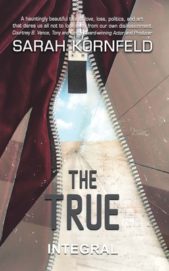 Sarah Kornfeld
Sarah Kornfeld
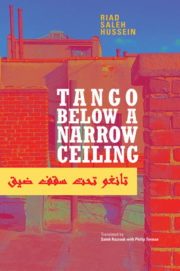
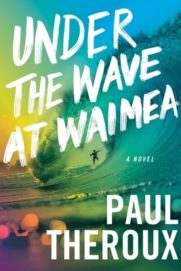
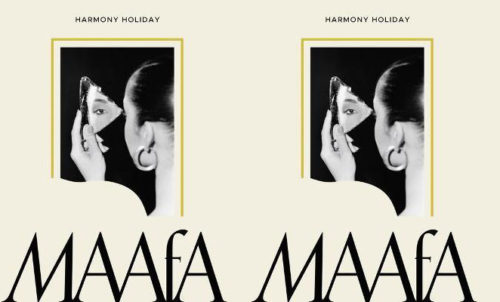

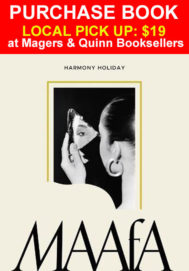
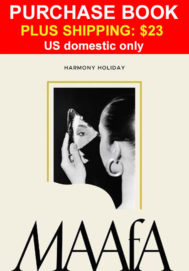
 Harmony Holiday is a writer, dancer, filmmaker, archivist, and the author of five acclaimed collections of poetry, including Negro League Baseball (Fence, 2011), winner of the Motherwell Prize, Go Find Your Father (Ricochet Editions, 2014), which includes letters to her own father, the late singer-songwriter Jimmy Holiday, and A Jazz Funeral for Uncle Tom (Birds, LLC, 2019). She curates the Afrosonics archive of jazz and diaspora poetics and a related publishing enterprise called Mythscience, and curates an interdisciplinary performance series at the Los Angeles Museum of Contemporary Art. She has received numerous awards including a Ruth Lilly Fellowship, a NYFA fellowship, a Schomburg Fellowship, a California Book Award, and a research fellowship from Harvard University’s Woodberry Poetry Room. She lives in Los Angeles.
Harmony Holiday is a writer, dancer, filmmaker, archivist, and the author of five acclaimed collections of poetry, including Negro League Baseball (Fence, 2011), winner of the Motherwell Prize, Go Find Your Father (Ricochet Editions, 2014), which includes letters to her own father, the late singer-songwriter Jimmy Holiday, and A Jazz Funeral for Uncle Tom (Birds, LLC, 2019). She curates the Afrosonics archive of jazz and diaspora poetics and a related publishing enterprise called Mythscience, and curates an interdisciplinary performance series at the Los Angeles Museum of Contemporary Art. She has received numerous awards including a Ruth Lilly Fellowship, a NYFA fellowship, a Schomburg Fellowship, a California Book Award, and a research fellowship from Harvard University’s Woodberry Poetry Room. She lives in Los Angeles.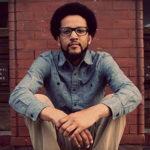 Chaun Webster is a poet and graphic designer living in Minneapolis whose work interrogates blackness and being as a way to interrogate the world. Webster’s debut book, Gentry!fication: or the scene of the crime, was published by Noemi Press in 2018, and received the 2019 Minnesota Book Award for poetry.
Chaun Webster is a poet and graphic designer living in Minneapolis whose work interrogates blackness and being as a way to interrogate the world. Webster’s debut book, Gentry!fication: or the scene of the crime, was published by Noemi Press in 2018, and received the 2019 Minnesota Book Award for poetry.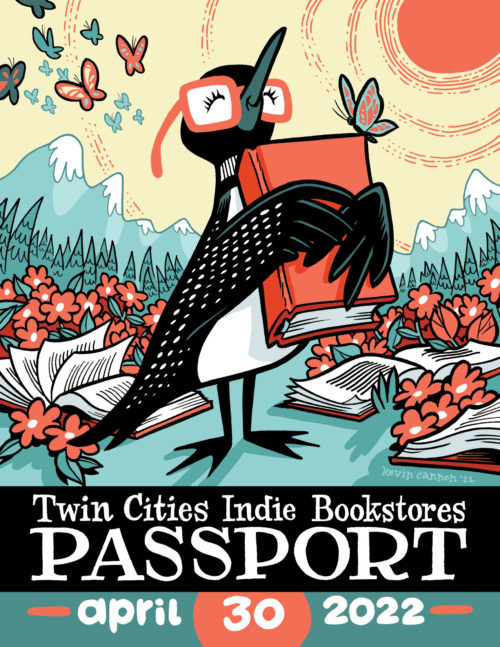





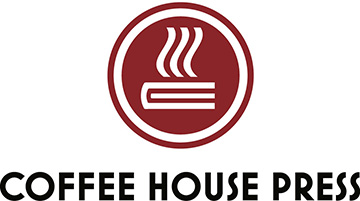


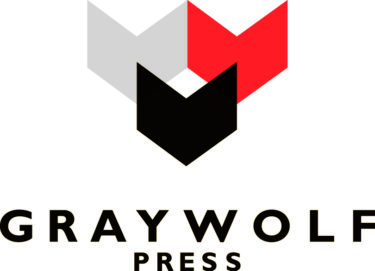








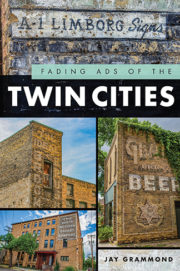
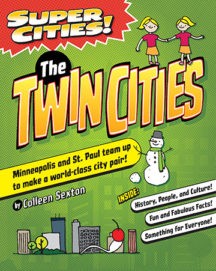
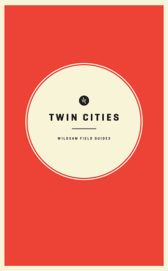






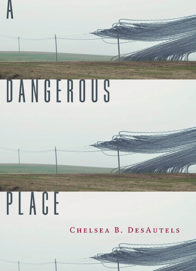





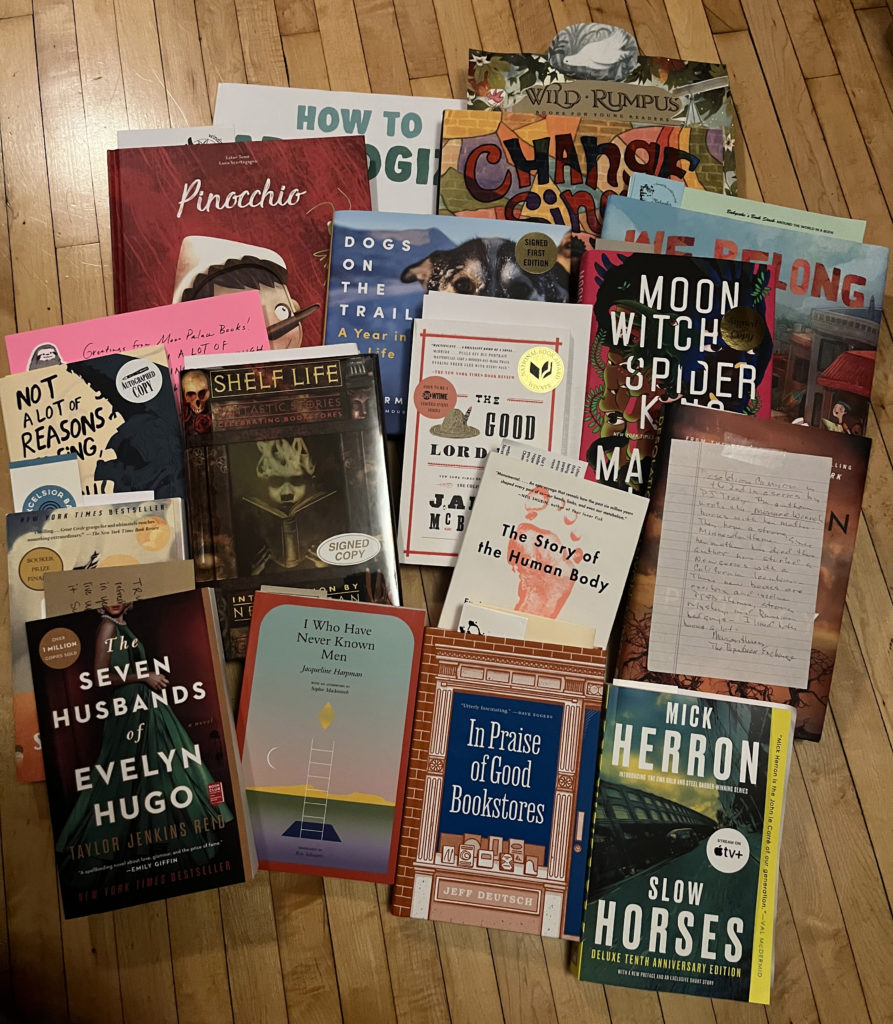
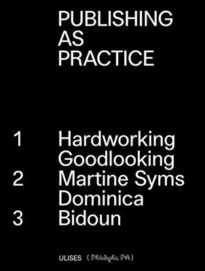

 by Davis Schneiderman
by Davis Schneiderman




